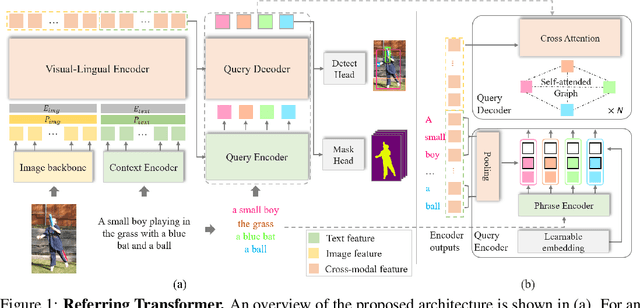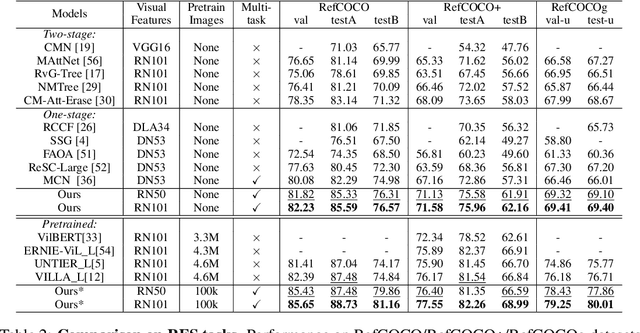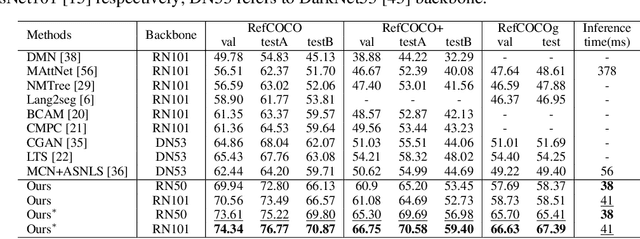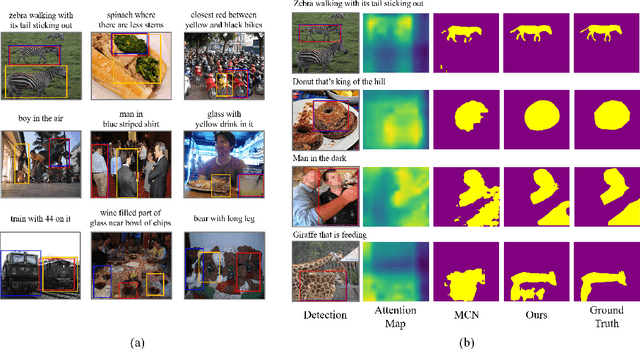Referring Transformer: A One-step Approach to Multi-task Visual Grounding
Paper and Code
Jun 06, 2021



As an important step towards visual reasoning, visual grounding (e.g., phrase localization, referring expression comprehension/segmentation) has been widely explored Previous approaches to referring expression comprehension (REC) or segmentation (RES) either suffer from limited performance, due to a two-stage setup, or require the designing of complex task-specific one-stage architectures. In this paper, we propose a simple one-stage multi-task framework for visual grounding tasks. Specifically, we leverage a transformer architecture, where two modalities are fused in a visual-lingual encoder. In the decoder, the model learns to generate contextualized lingual queries which are then decoded and used to directly regress the bounding box and produce a segmentation mask for the corresponding referred regions. With this simple but highly contextualized model, we outperform state-of-the-arts methods by a large margin on both REC and RES tasks. We also show that a simple pre-training schedule (on an external dataset) further improves the performance. Extensive experiments and ablations illustrate that our model benefits greatly from contextualized information and multi-task training.
 Add to Chrome
Add to Chrome Add to Firefox
Add to Firefox Add to Edge
Add to Edge